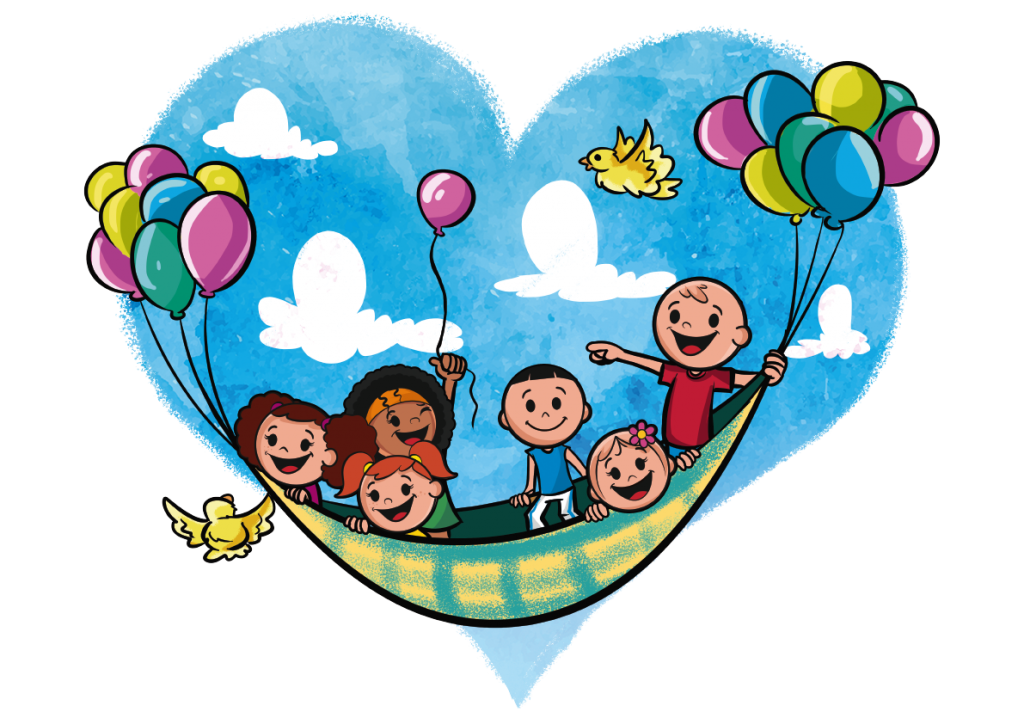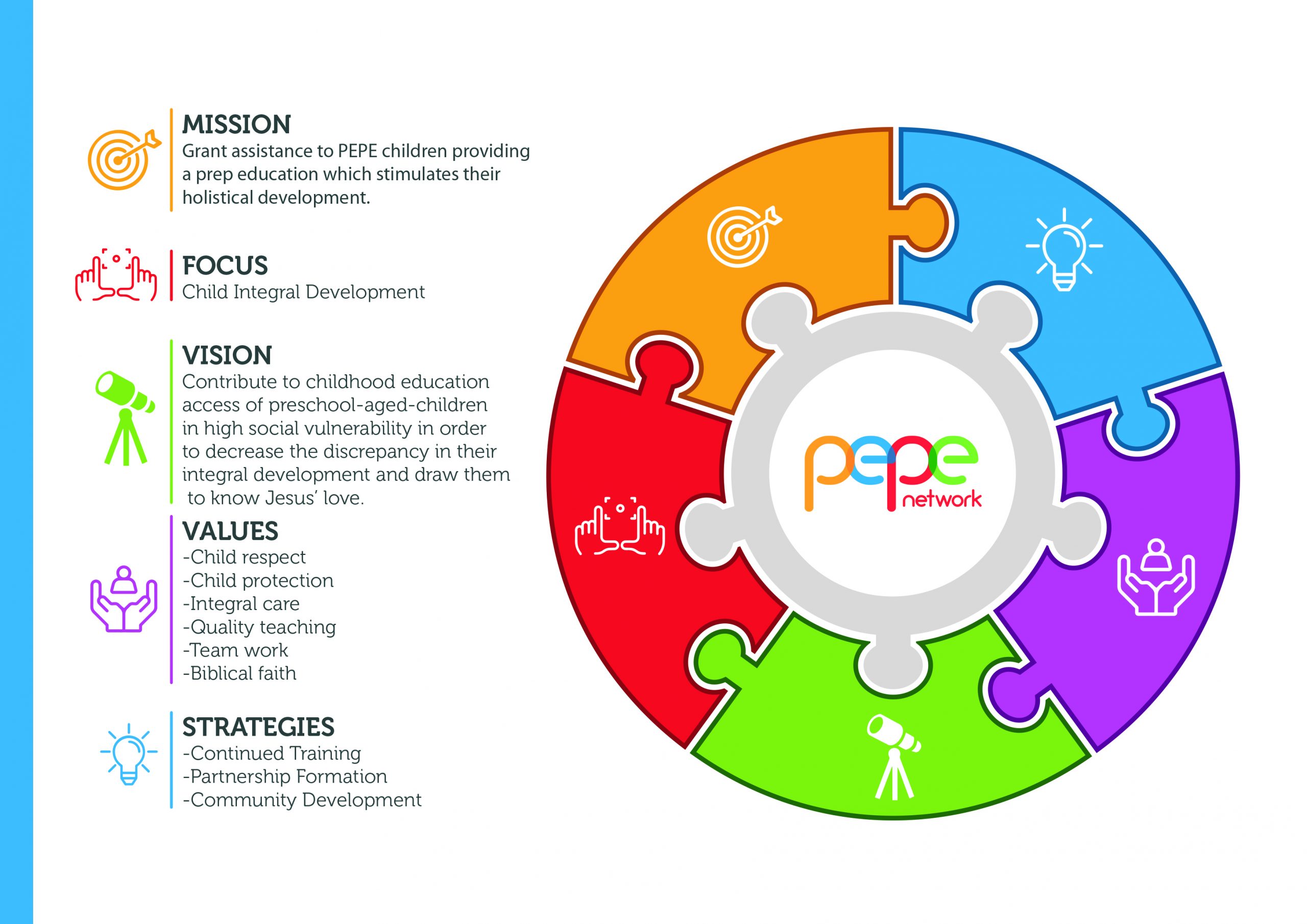Who we are
PEPE Network is a PEPE net. It is a cooperative connection created to facilitate the initiatives spread and possibilities to a better development and strengthen of PEPE program in the world. The net is promoted by the following signatory organizations:

PEPE Network’s Role
Ensure that…
the management of the signatory organizations act according to the Pepe Network Alliance.
Propose, approve and monitor…
the policies to reach the organizational purposes and governance practices, strategic guidance, succession process of the counselors, relationship with strategical partners, internal control systems.
Follow…
the execution of the budget of the signatory organizations of the programs PEPE Brazil and International.
Follow and validate…
the results of the work of the committees( of efficiency, pedagogical and human development).
Support and supervise…
the management of the strategical planning, of risks and of people.
What is?
PEPE is a socio-educative missionary program promoted in partnership with evangelical churches and communities in Brazil and in several countries of Latin America, Africa and Southeast Asia. It takes hope to the children in a social vulnerable situation, preparing them for the life and to enroll a regular school. It aims the strengthening of the self-confidence and the skills of the little ones during the two years anticipating their enrollment in a formal school.
In Brazil, PEPE means Program of the Gospel Principles Teaching and it is developed under the responsibility of ABIAH – Brazilian Association of encouragement and support of the Man. Abroad, PEPE means PRE-School education Program and it is developed under the responsibility of World Board Missions of the Baptist Brazilian Convention, as PEPE International.
In more than 30 countries, PEPE meets less favored children with financial resources and limited access to school education. It has its activities developed from Monday to Friday, in the morning or afternoon shift, in a total of at least three hours daily. The program curriculum is based in a curricular referential for the childhood of each country where it is inserted. All the activities are approached developed and include the following areas of knowledge: Language, Nature and Society, Music, Visual Arts, Christian Education, Movement and Mathematics.
The program is based in the Christian Faith and aligned to the proposal of the United Nations Organization to reach the Millennium development objectives, which worries the State Chiefs and government around the world.

Benefits
For the children
- Integral Development.
- Enrollment in the primary school with self-esteem and enthusiasm.
- Less favored receive quality pre-school education.
For the families
- Condition to develop socially and spiritually.
- Opportunity to know values and approach a new perspective
- Guidance in rebuilding their home.
For the educators
- Pedagogical and Biblical Formation.
- Become better workers in the church, accomplishing their missionary vocation.
- Experience a personal and integral development.
For the society
- Children prepared to follow the teaching/learning process, full of hope, educated to be good citizens, besides cooperators in the community they live in.
- Families met and supplied in their educational needs.
Where we are

About Us
Data from 2023/2024
33
Countries
685
Units
21.621
Benefited children
1.488
Missionaries-educators of the countries in action
113
Coordinators
3.027
Trained church leaders
20.214
Visited families